The pecan nut, native to North America, is a beloved tree nut known for its rich, buttery flavor and high nutritional value. Often featured in pies, confections, salads, and snacks, pecans are more than a culinary delight — they’re a valuable agricultural commodity. But which country dominates this flavorful nut’s production?
The answer is clear: The United States of America is the largest pecan producer in the world, contributing the majority share of global pecan production annually.
This article delves into the global pecan industry, with a strong focus on the U.S.’s leading role, supported by comparative insights into other producing nations, export markets, cultivation trends, and challenges.
Global Overview of Pecan Production
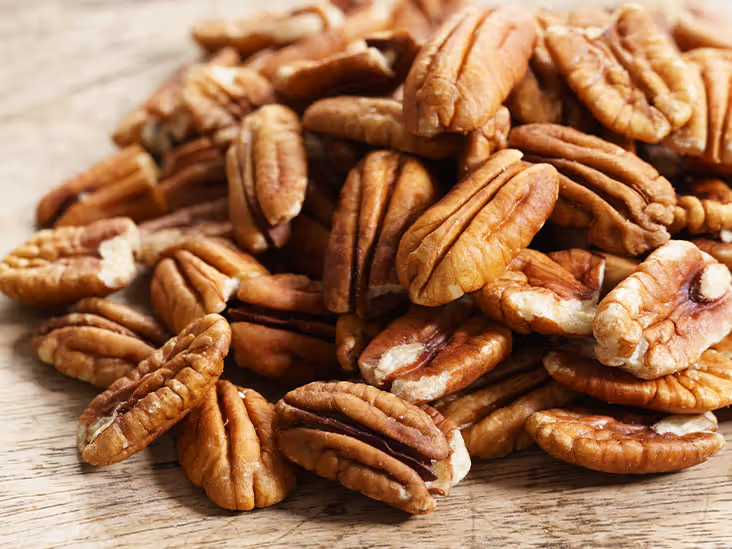
Pecans (Carya illinoinensis) are primarily cultivated in countries with a warm temperate to subtropical climate. Globally, the primary pecan-producing countries include:
- United States
- Mexico
- South Africa
- Australia
- Brazil
- Argentina
Among these, the United States consistently holds the top position, both in terms of volume and quality. It is the historical and botanical home of the pecan tree, which grows naturally in river valleys of the southern U.S.
The United States: The Unquestioned Pecan Leader
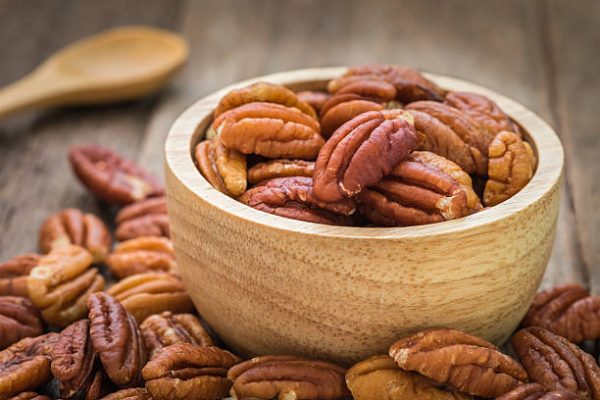
1. Production Volume and National Dominance
The U.S. has led global pecan production for more than a century. According to data from the U.S. Department of Agriculture (USDA) and International Nut and Dried Fruit Council (INC):
- In 2023, the U.S. produced over 135,000 to 150,000 metric tons (in-shell) of pecans.
- This accounts for nearly 60–65% of total global pecan production.
- More than 20 U.S. states grow pecans commercially, with production heavily concentrated in the Southeast and Southwest.
2. Key Pecan-Producing States
The leading pecan-producing states include:
- Georgia – Often dubbed the “Pecan Capital of the World”, Georgia alone contributes over 30% of U.S. production.
- Texas – The native home of the pecan tree and a major producer, especially of native varieties.
- New Mexico – Known for its irrigated pecan orchards with high yields and export quality.
- Arizona, Oklahoma, Louisiana, and Mississippi also have significant output.
3. Pecan Varieties in the U.S.
The U.S. grows a wide range of pecan cultivars, each suited to specific climates and soil types. Some popular varieties include:
- Stuart
- Desirable
- Pawnee
- Western
- Caddo
- Cape Fear
These cultivars vary in size, oil content, shell thickness, and kernel color — factors important for both processing and fresh consumption.
4. Pecan Export Market
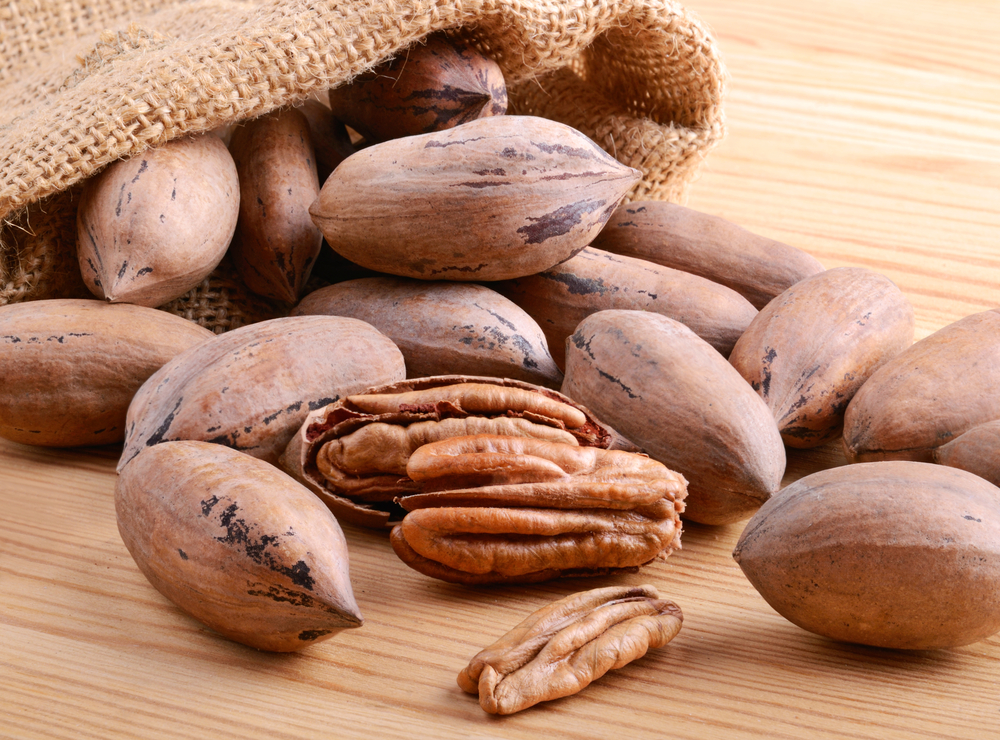
The U.S. is also the largest pecan exporter, supplying nuts to countries including:
- China
- Canada
- Germany
- Netherlands
- United Kingdom
- South Korea
China has emerged as a major buyer since the 2010s, significantly boosting demand for U.S. pecans, particularly in-shell varieties.
5. Economic Importance
Pecans represent a vital part of American agriculture:
- Over 250,000 hectares of land are devoted to pecan orchards.
- The industry supports thousands of growers and processors, particularly in rural areas.
- The economic impact exceeds $500 million annually in farmgate value alone.
The American Pecan Council actively promotes pecans globally and funds research into health benefits, marketing, and orchard innovation.
Mexico: A Major Contributor
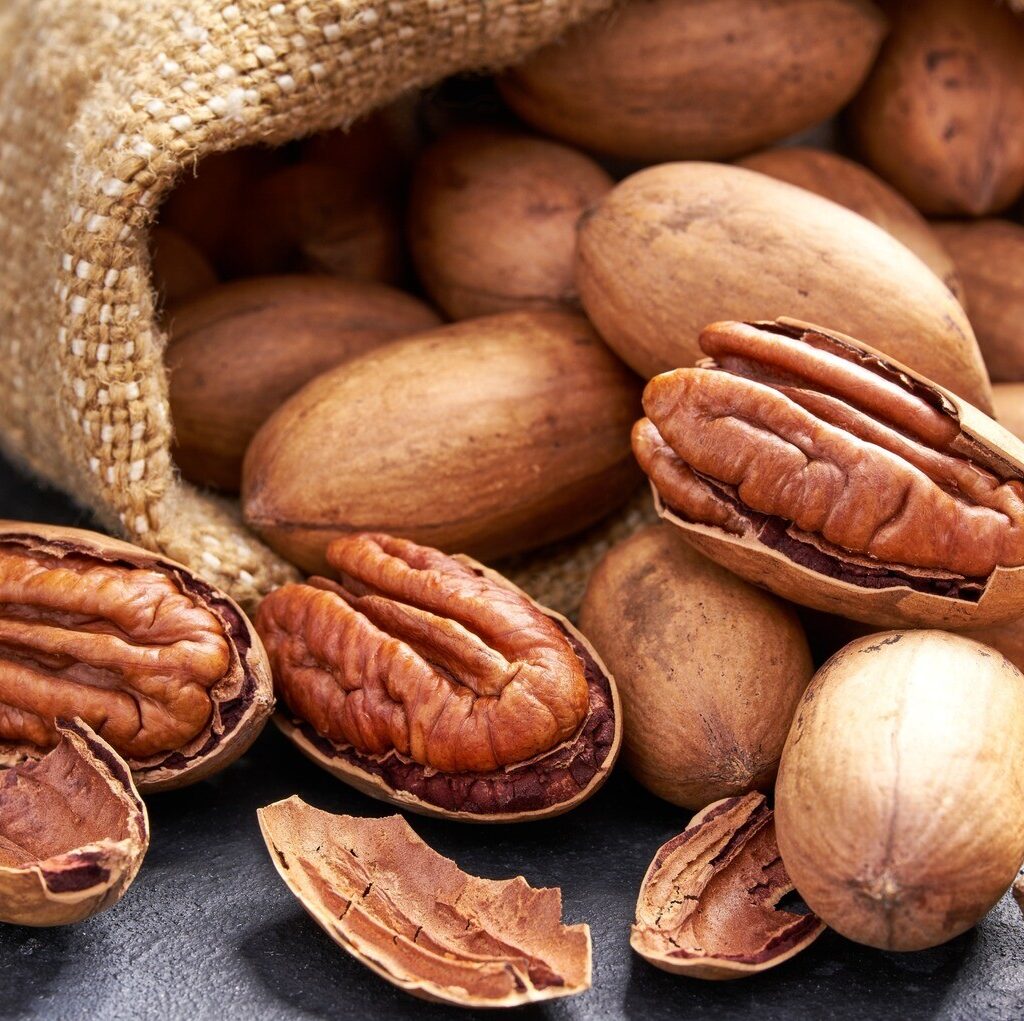
1. Rising Production
Mexico is the second-largest producer of pecans in the world. In recent years, it has expanded pecan orchards significantly, producing around 110,000–125,000 metric tons of in-shell pecans annually.
2. Key Growing States
- Chihuahua – The top-producing region, often referred to as Mexico’s pecan powerhouse.
- Coahuila
- Durango
- Sonora
These states offer favorable climates similar to the U.S. Southwest, allowing for high-quality yields.
3. Trade Relationship with the U.S.
A significant portion of Mexico’s pecan crop is exported to the United States, where it is processed, branded, or consumed domestically. Cross-border collaboration has become increasingly important in the North American pecan supply chain.
South Africa: The Emerging Player
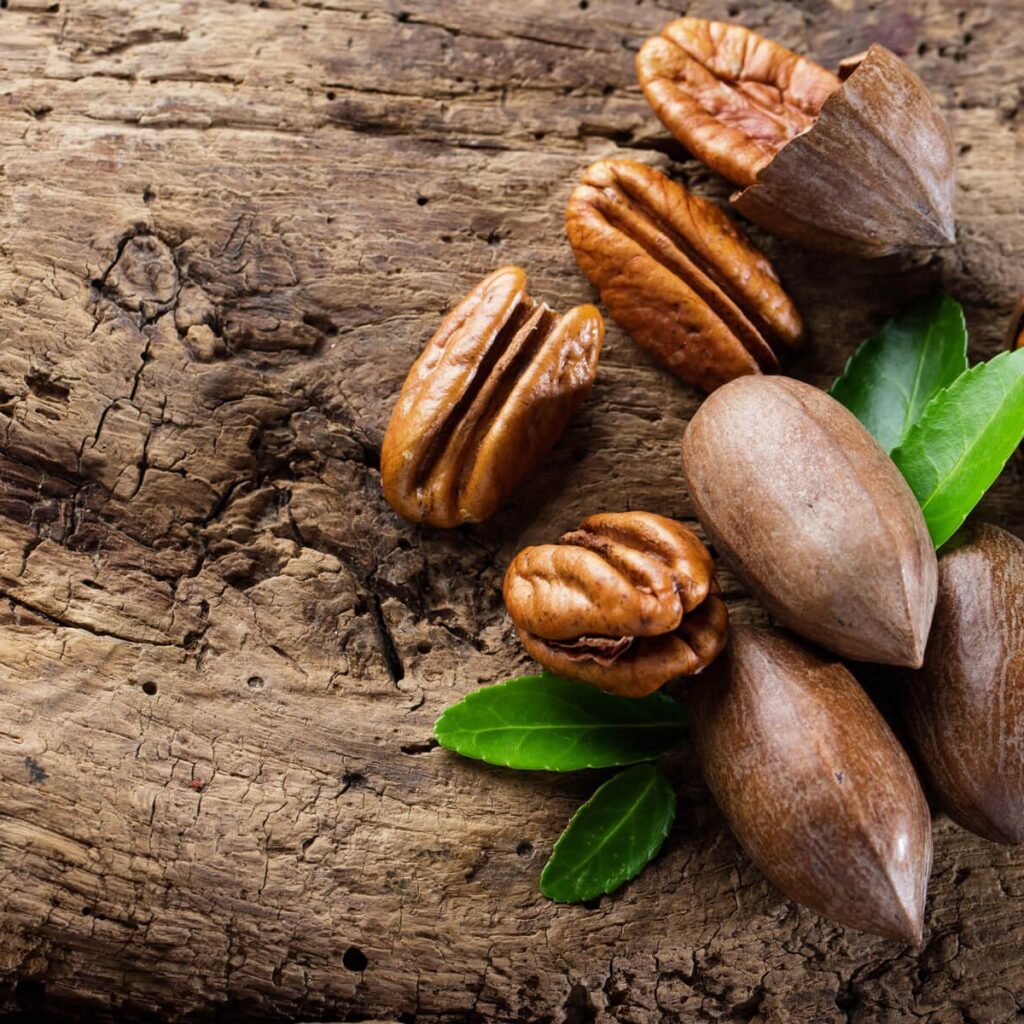
South Africa has become a rising star in the global pecan market:
- Current production exceeds 20,000–25,000 metric tons, and is projected to grow rapidly.
- Ideal climates in Limpopo, Northern Cape, and Mpumalanga regions support expansion.
- Much of South Africa’s pecans are exported to China, making it a key supplier in Asian markets.
South Africa’s pecan industry is still young but benefits from strong investment, export orientation, and government support.
Other Notable Producers
1. Australia
Australia has a growing pecan industry with orchards in New South Wales and Queensland. Annual production is modest (approx. 5,000–7,000 MT), but high-quality standards and exports to Asia are expanding.
2. Brazil and Argentina
These South American nations have begun cultivating pecans commercially, with promising climates and potential for future export markets, especially within the region.
Why the U.S. Leads the Pecan Industry
1. Native Origin
Pecans are native to North America. Wild pecans were consumed by Native American tribes and later cultivated by settlers. This natural adaptation gives the U.S. an unmatched biodiversity of cultivars.
2. Infrastructure and Research
The U.S. pecan industry benefits from:
- Decades of university research (e.g., at University of Georgia and Texas A&M)
- Mechanized harvesting
- Integrated pest and irrigation management systems
- Sophisticated shelling, packaging, and storage infrastructure
3. Marketing and Promotion
The American Pecan Council has run nationwide campaigns to brand pecans as a premium, healthy snack, increasing domestic and global demand.
Health Benefits Driving Demand
Pecans are loaded with nutrients, making them increasingly popular among health-conscious consumers:
- High in monounsaturated fats and antioxidants
- Good source of zinc, magnesium, and fiber
- Help lower LDL (bad) cholesterol
- Promote heart and brain health
With the rise of plant-based diets and natural superfoods, pecans are gaining recognition not only as a treat but as a functional food.
Challenges Facing Global Pecan Production
Despite growth, the pecan industry faces several challenges:
1. Water Scarcity
Pecan trees are water-intensive, and droughts in major producing regions like California, New Mexico, and northern Mexico pose serious threats.
2. Climate Change
Unpredictable frost, heatwaves, and hurricanes can damage flowering and yields, reducing nut quality and consistency.
3. Pests and Diseases
Common threats include pecan scab, hickory shuckworm, and aphids. Integrated pest management and resistant varieties are being developed to mitigate losses.
4. Market Volatility
Price fluctuations due to trade barriers (like the U.S.-China tariffs) and shifting demand can create uncertainty for growers and exporters.
Future Outlook
The global pecan market is expected to grow steadily, driven by:
- Rising demand for plant-based snacks
- Expanded use in confectionery and bakery industries
- Greater awareness of health benefits
- Increasing production in emerging markets like South Africa, Australia, and South America
According to market forecasts, the global pecan industry could surpass $3 billion USD by 2030, with the U.S. remaining at the forefront of innovation and volume.
Conclusion
When it comes to answering the question, “Which country is the largest pecan producer in the world?”, the United States holds an undeniable lead. With its native advantage, large-scale commercial orchards, cutting-edge research, and robust export networks, the U.S. consistently accounts for the majority of global pecan output.
As the pecan market continues to evolve, countries like Mexico and South Africa are carving out growing roles. However, the U.S. remains the powerhouse that others look to in terms of both quantity and quality.
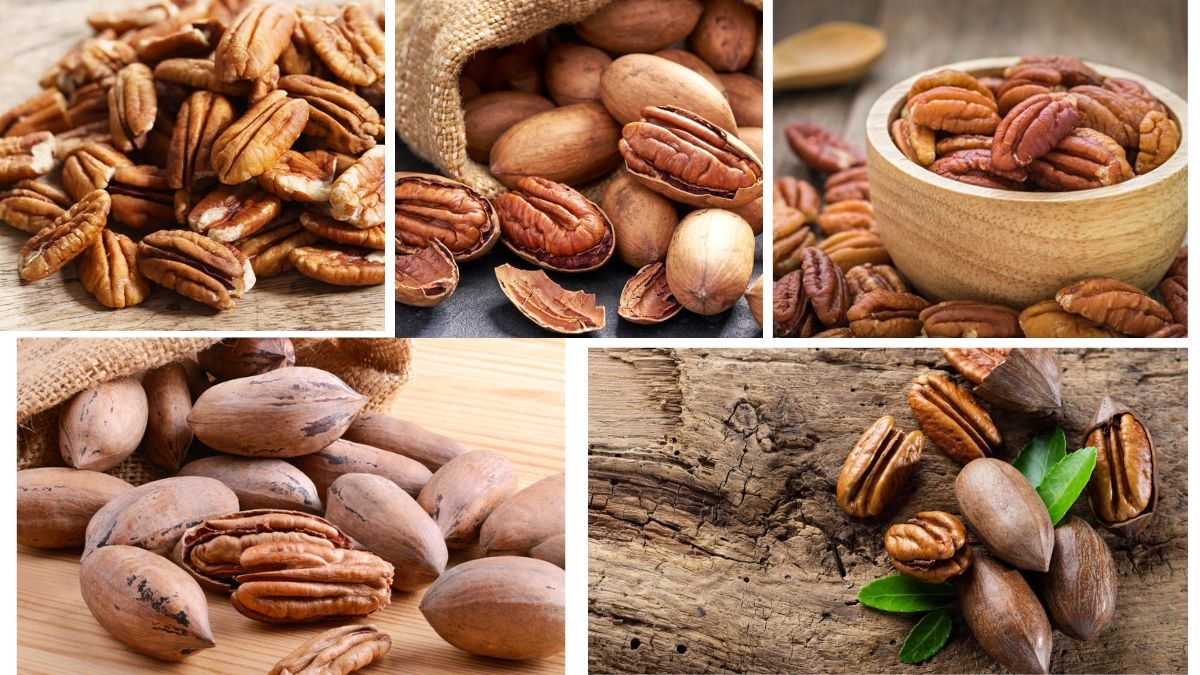


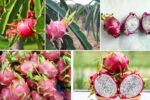

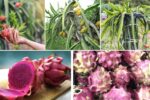
Leave A Comment